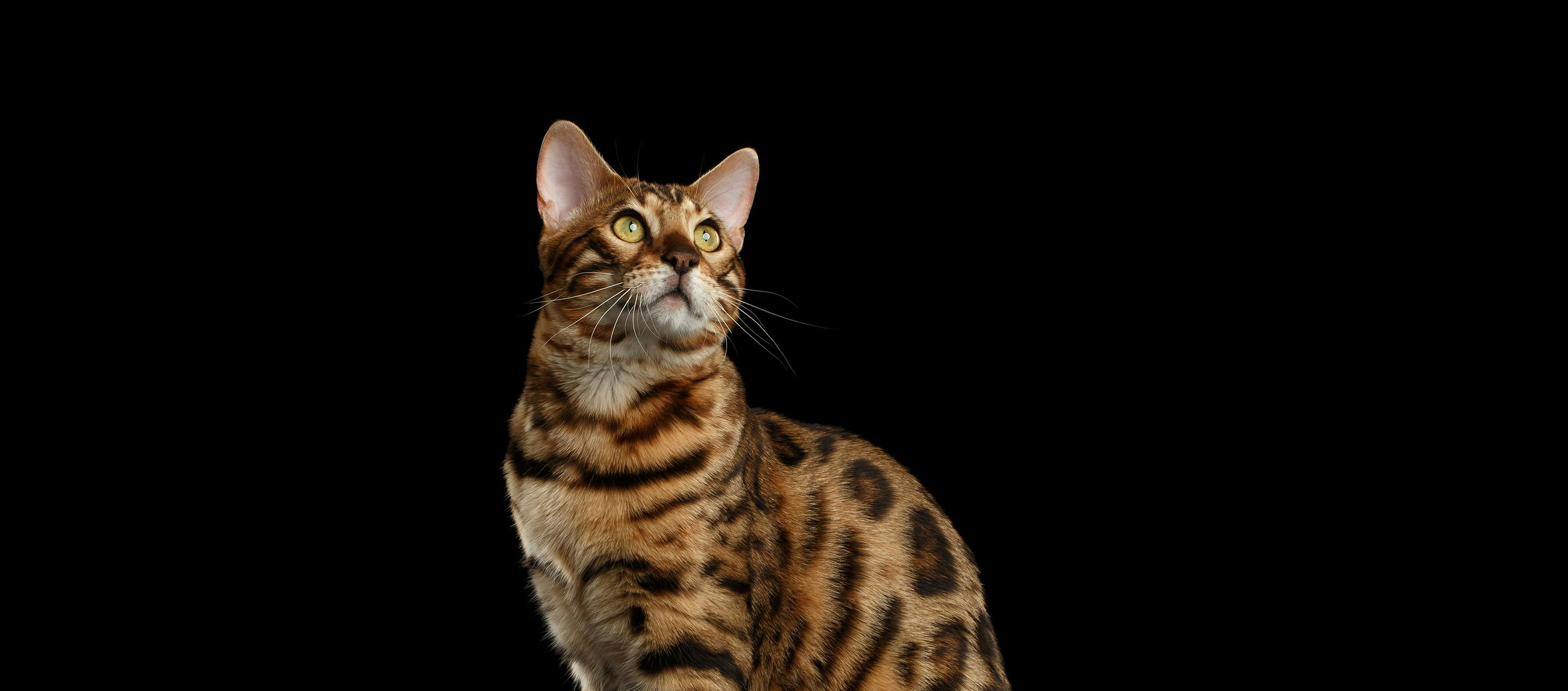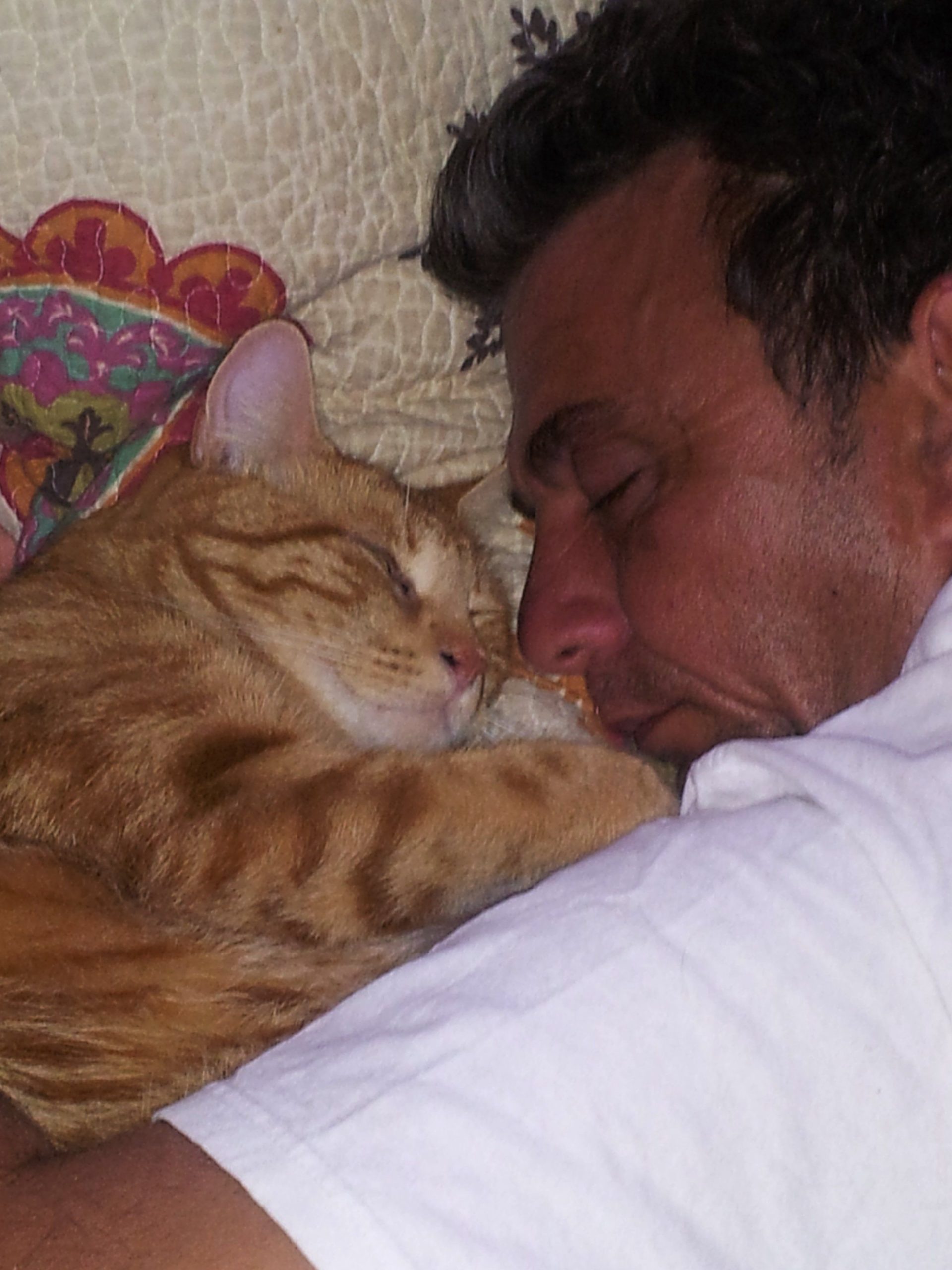Contents
I. Introduction

Savannah cats are a unique breed that has gained popularity among pet lovers in recent years. Combining the wild look of a serval with the domestic temperament of a domestic cat, Savannahs are known for their exotic appearance and playful personalities. However, before considering bringing a Savannah cat into your home, it’s important to weigh the pros and cons to determine if they make good pets.
The Pros of Owning a Savannah Cat
1. Unique Appearance: One of the main reasons why people are drawn to Savannah cats is their striking appearance. With their long legs, sleek body, and distinctive coat patterns, they are often compared to mini leopards.
2. Active and Playful: Savannah cats are highly energetic and require ample mental and physical stimulation. They enjoy interactive play and are excellent jumpers, making them a great choice for owners who can provide an active lifestyle.
3. Intelligent and Trainable: Savannah cats are known for their intelligence and ability to learn commands. With patience and positive reinforcement, they can be trained to walk on a leash, perform tricks, and even use a litter box.
The Cons of Owning a Savannah Cat
1. High Energy Level: While their energy can be a positive trait, it can also be overwhelming for some owners. Savannah cats require plenty of exercise and mental stimulation to prevent them from becoming bored or destructive.
2. Specialized Care: Due to their unique breed characteristics, Savannah cats have specific care requirements. They need a spacious environment with plenty of climbing opportunities and toys to keep them entertained.
3. Legal Restrictions: Depending on your location, there may be legal restrictions on owning a Savannah cat. Some countries and states have strict regulations due to concerns about their hybrid nature and potential impact on native wildlife.
II. What are Savannah Cats?

Savannah cats are a unique and fascinating breed of domestic cat that have gained popularity among cat enthusiasts in recent years. These cats are a crossbreed between a domestic cat and a serval, a medium-sized wild African cat. The result is a stunningly beautiful and exotic-looking cat that possesses some of the characteristics of both its domestic and wild ancestors.
1. Appearance
Savannah cats are known for their striking appearance. They have a lean and muscular body with long legs, which gives them a regal and elegant look. Their coat is short and typically spotted, resembling that of a leopard or cheetah. The color of their coat can vary, but common colors include brown, silver, and black. Their ears are large and pointed, reminiscent of their wild serval ancestors.
2. Personality
One of the most appealing aspects of Savannah cats is their unique personality. They are highly intelligent and curious animals, always seeking out new experiences and adventures. They are also known for being active and playful, often displaying dog-like behaviors such as fetching and walking on a leash. Savannah cats form strong bonds with their owners and are known to be affectionate and loyal companions.
3. Energy Level
Due to their wild ancestry, Savannah cats have a high energy level and require plenty of physical and mental stimulation. They thrive in environments that provide them with opportunities to climb, explore, and engage in interactive play. It’s important for owners to provide ample outlets for their cat’s energy, such as puzzle toys, scratching posts, and interactive play sessions.
4. Care and Maintenance
While Savannah cats make wonderful pets, they do require specific care and maintenance. Their diet should consist of high-quality cat food that meets their nutritional needs. Regular veterinary check-ups, vaccinations, and parasite prevention are also essential to their overall health and wellbeing. Additionally, their litter boxes should be cleaned regularly, and they should have access to fresh water at all times.
5. Legal Considerations
It’s important to note that owning a Savannah cat may be subject to legal restrictions in some areas. Due to their hybrid nature, some jurisdictions classify them as exotic pets and may require special permits or licenses to own one. It’s crucial for prospective owners to research and understand the legal regulations in their area before bringing a Savannah cat into their home.
III. Pros of Having a Savannah Cat as a Pet

Are you considering bringing a Savannah cat into your home? These unique and exotic feline companions have gained popularity in recent years due to their striking appearance and fascinating personality traits. If you’re wondering about the benefits of having a Savannah cat as a pet, read on to discover some of the pros that come with owning one.
1. Intelligent and Interactive Companions
Savannah cats are known for their high intelligence and curious nature. They are quick learners and can be trained to perform tricks and even walk on a leash. These cats love to play and engage in interactive activities with their owners, making them wonderful companions for those who enjoy an active and stimulating lifestyle.
2. Unique Appearance
One of the most striking features of Savannah cats is their distinctive appearance. They have a wild and exotic look, resembling their serval ancestors. With their large ears, long legs, and spotted coat, these cats are guaranteed to turn heads wherever they go. If you want a pet that stands out from the crowd, a Savannah cat is an excellent choice.
3. Low Allergenic Potential
If you or someone in your household suffers from allergies, fear not. Savannah cats are known to produce fewer allergenic proteins compared to other cat breeds. While no cat is truly hypoallergenic, many people with mild to moderate allergies find that they can comfortably coexist with a Savannah cat without experiencing severe allergic reactions.
4. Active and Energetic
Savannah cats have a natural affinity for physical activities and love to jump, climb, and explore. If you’re an active individual or have a family that enjoys engaging in play sessions, a Savannah cat will be an excellent match for you. These cats thrive in spacious environments where they can exercise their athletic capabilities.
5. Social and Affectionate
Despite their wild appearance, Savannah cats are known for their social and affectionate nature. They form strong bonds with their human owners and enjoy being part of the family. These cats often crave attention and will gladly spend quality time with their human companions, providing love, cuddles, and companionship.
Bringing a Savannah cat into your life can be a rewarding experience. With their intelligence, unique appearance, low allergenic potential, high energy levels, and social nature, these cats offer a one-of-a-kind pet ownership experience. However, it’s essential to remember that each cat is an individual, and their personality may vary. Ensure you provide proper care, socialization, and a stimulating environment to ensure a harmonious relationship with your Savannah cat.
IV. Cons of Having a Savannah Cat as a Pet

Despite their many positive traits, owning a Savannah cat as a pet also comes with a few drawbacks that potential owners should consider before making a decision.
1. High Energy Level
Savannah cats are known for their high energy levels. They require plenty of mental and physical stimulation to prevent boredom and destructive behavior. Regular playtime and interactive toys are necessary to keep them entertained and satisfied.
2. Size and Strength
As Savannah cats are a hybrid breed with serval ancestry, they can grow to be quite large and muscular. This can be intimidating for some people, especially if they are not familiar with larger cat breeds. Their strength and agility can also pose challenges when it comes to handling and controlling them.
3. Need for Space
Due to their active nature, Savannah cats need ample space to roam and explore. They are not suitable for small apartments or confined living environments. It is essential to provide them with a spacious and stimulating environment where they can climb, jump, and play to their heart’s content.
4. Vocalization
Savannah cats are known to be quite vocal. They have a wide range of vocalizations, from chirps and trills to loud meows. This can be a nuisance for some owners, especially if they live in close proximity to neighbors who may not appreciate the noise.
5. Time and Attention
Owning a Savannah cat requires a significant investment of time and attention. They are highly social animals and crave companionship. Neglecting their social and emotional needs can lead to behavioral issues such as anxiety or aggression. Potential owners should be prepared to spend quality time bonding and interacting with their Savannah cat.
V. Frequently Asked Questions about Savannah Cats
:strip_icc()/savannah-cat-4ec08e9efe40457a8f73a2af24fcdcc3.jpeg)
Are you considering getting a Savannah cat as a pet? Here are some frequently asked questions that can help you make an informed decision:
1. What is a Savannah cat?
A Savannah cat is a hybrid breed that is a cross between a domestic cat and the wild African serval. These cats are known for their exotic appearance, with long legs, large ears, and striking coat patterns.
2. Are Savannah cats good pets?
Yes, Savannah cats can make great pets for the right owner. However, they require a lot of attention and care. They are highly intelligent, active, and curious cats that need plenty of mental and physical stimulation.
3. How big do Savannah cats get?
Savannah cats can grow to be quite large. They are one of the largest domestic cat breeds, with some individuals reaching up to 20 pounds or more. The size of a Savannah cat can vary depending on the generation and individual genetics.
4. Do Savannah cats get along with other pets?
Savannah cats can get along well with other pets if they are properly socialized from a young age. However, their strong prey drive may make them chase smaller animals, so it’s important to supervise their interactions with other pets.
5. Do Savannah cats require a special diet?
Savannah cats have unique dietary needs. They require a high-protein diet, similar to what their wild ancestors would eat. A balanced diet that includes raw meat, high-quality commercial cat food, and supplements is recommended for optimal health.
6. Are Savannah cats hypoallergenic?
While no cat breed is completely hypoallergenic, Savannah cats are known to produce fewer allergens compared to other breeds. This may make them a better option for individuals with cat allergies, but it’s important to spend time with a Savannah cat before bringing one home to see how you react.
7. Do Savannah cats need a lot of exercise?
Yes, Savannah cats are highly active and need plenty of exercise to prevent boredom and behavioral issues. Providing them with interactive toys, puzzle feeders, and opportunities for playtime can help keep them physically and mentally stimulated.
8. Are Savannah cats legal to own?
The legality of owning a Savannah cat varies depending on your location. Some states or countries have restrictions or require permits for owning hybrid cats. It’s important to research and comply with local regulations before getting a Savannah cat.
By considering these frequently asked questions, you can gain a better understanding of what it takes to care for a Savannah cat and decide if it’s the right pet for you.

Jackson is an accomplished content writer with a flair for captivating storytelling. With a Bachelor’s degree in English Literature from the prestigious University of California, Berkeley, Hunter’s educational background has honed his writing skills to perfection. His love for felines is evident in his extensive knowledge of cat behavior and care, making him an expert in the field. Hunter’s passion for cats has led him to contribute insightful articles to various online platforms, providing valuable information and tips to cat owners worldwide. With his exceptional writing abilities and deep understanding of cats, Hunter continues to create engaging content that resonates with readers and leaves a lasting impact.
